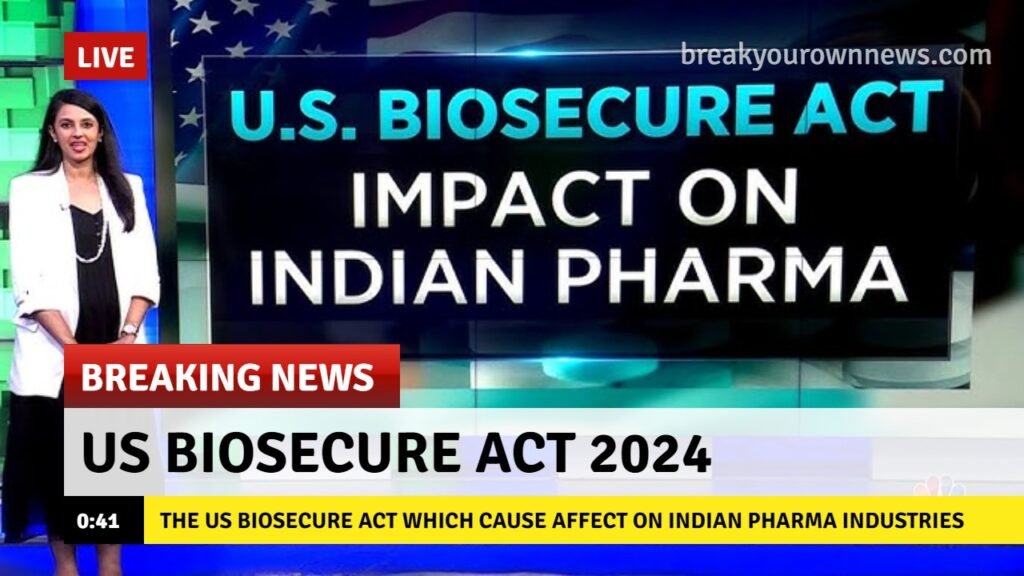The US Biosecure Act Which Recently Introduces Will Cause Affect on Indian Pharma Industries

Larger international firms are cautiously looking for measures to diversify their supply base in response to the Biosecure Act. Big Pharma’s interest in Indian enterprises has surged as a result of this.
Laurus Labs, for instance, has noticed an increase in late-phase project requests and the start of vendor diversification.
But instead of happening in a matter of months or quarters, Dr. Chava of Laurus Labs predicts that this change will happen gradually over time. Businesses will likely begin by assigning minor projects to one another, with collaborations growing over time.
Piramal Pharma is also having more exploratory conversations.
Customers are still weighing their alternatives, even though many of them are doing so. This has led to queries, visits, audits, and requests for offers, but no big decisions have been taken as of yet.
Although Neuland Labs has increased its client visits, meetings, and interactions with US companies, it hasn’t noticed a significant increase in the number of current orders or requests for proposals.
Contrary to CDMOs with a clinical or biological focus, Neuland is primarily an Active Pharmaceutical Ingredient (API) company, even though the company is upbeat about the favorable environment in the medium to long term.
Analysts note that Syngene seems to be getting greater traction, probably as a result of its current long-term partnerships with global firms.
A material shift’ in big pharma’s risk-averse sourcing methods has been noted by Jonathan Hunt of Syngene.
As part of the ‘China switch’ opportunity, Syngene has disclosed that it is taking part in trial projects. The company had a 50% year-over-year (YoY) growth in RFPs in terms of value in the first quarter, which is its highest performance in four years.
There are obstacles to overcome even as Indian businesses get ready to take advantage of these opportunities by increasing capacity and investing in technology.
Experts point out that when it comes to large-molecule capacity, technology, trust, and expertise, Indian businesses fall short of their international counterparts. To compete with US and European businesses for the same business, Indian enterprises must improve their competencies.
Given their greater financial resources, Big Pharma is anticipated to investigate India as an alternative more quickly than up-and-coming biotech enterprises.
While the Biosecure Act’s implementation timeframe has lessened the need for urgent alternatives, the general trend is still positive and presents a long-term opportunity for Indian contract development and manufacturing organizations (CDMO) and contract research organizations (CRO).
The Syngene International, US Biosecure Act presents a real potential for Indian enterprises, says Sibaji Biswas, ED & CFO. Regarding India’s CRO and CDMO markets for the next four to five years, he is optimistic.
According to Vishal Manchanda, a pharmaceutical analyst at Systematix Group, the US Biosecure Act may have a significant positive impact on Divi’s Laboratories, Suven Life Sciences, Aarti Pharmalabs, and Syngene.